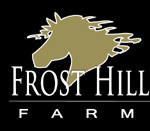The Importance of a Sound Vaccination Program
Vaccination is a term with which every horse owner is familiar. Moreover,
many do not realize the importance of a well-planned vaccination
program for horses. A vaccination program, designed by
a veterinarian, will help ensure the horses in a stable stay
healthy and productive. An effective and successful vaccination
program against infectious diseases is an essential component
and key management tool for any horse operation wishing to
institute a preventative medicine program. Horses, just
like people, are constantly exposed to bacterial and viral
organisms. Many of these can cause mild to debilitating
diseases. This risk is especially significant when horses
are shipped to tracks, farms, or other stables. The more
a horse is away from his home environment and mingled with
other horses, the greater the chance of exposure to potential
carriers of infectious diseases. This is particularly
true of respiratory diseases. Infectious disease control
programs, in conjunction with vaccination, are important in
maximizing the health, productivity, and performance of a horse. A
veterinarian can help design a health program to reduce exposure
to infectious disease agents in a horse’s environment
to lessen the incidence of illness. Disease control programs
should be tailored to individual needs, with consideration
given to ages, types, activities, and number of horses in the
program. The schedule below is a suggested vaccination
schedule provided by the American Association of Equine Practitioners,
and is based on generally accepted veterinary practices.
Recommended Equine Vaccination Schedule


